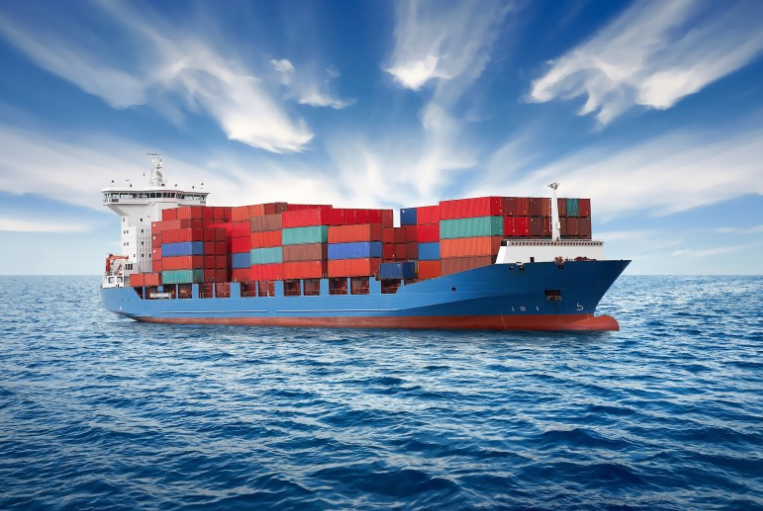The Importance of Sea Freight Shipping in International Trade

International trade plays a significant role in the global economy, with goods being exchanged between countries on a daily basis. One of the key factors that enable this exchange to happen is the transportation of goods, and sea freight shipping is a crucial part of this process. Sea freight shipping involves the transportation of goods by ships across oceans and is the most widely used method of international transportation. In this article, we will explore the importance of sea freight shipping in international trade.
1. Cost-Effectiveness
Sea freight shipping is known for its cost-effectiveness compared to other transportation methods such as air or road. Ships have the capacity to carry large volumes of goods, making it a cost-effective option for businesses looking to transport goods in bulk. The economies of scale achieved through sea freight shipping result in lower transportation costs per unit of goods, which is particularly advantageous for businesses involved in the import or export of goods.
2. Accessibility to Global Markets
Sea freight shipping provides access to global markets, allowing businesses to expand their reach and tap into new opportunities. Ships are capable of reaching various ports across the world, providing businesses with the ability to transport goods to different countries and continents. This accessibility to global markets is crucial for businesses that want to establish a global presence and cater to international customers.
3. Versatility in Cargo Types
Sea freight shipping offers versatility in terms of the types of cargo that can be transported. Ships are capable of handling a wide range of cargo, including bulk commodities, such as coal, iron ore, and grain, as well as containers carrying manufactured goods. This versatility makes sea freight shipping suitable for various industries and types of goods.
Sea freight shipping is highly adaptable to the needs of industries across the board. Whether it’s transporting raw materials like coal, iron ore, and grain in large quantities or carrying containers filled with manufactured goods, ships have the capacity and capability to handle it all. This versatility is what makes sea freight shipping a preferred choice for businesses in different sectors.
Industries such as mining, agriculture, and manufacturing heavily rely on sea freight shipping to transport their products efficiently and cost-effectively. Coal and iron ore mines, for example, can efficiently move their extracted resources via large cargo ships, ensuring a steady supply to power plants and steel mills around the world. Similarly, agricultural producers can transport their grains across vast distances on cargo ships, reaching global markets with ease.
Moreover, sea freight shipping is also ideal for businesses engaged in international trade. Containers filled with manufactured goods can be easily loaded onto ships, providing a reliable and secure means of transportation. This is particularly advantageous for industries like automotive, electronics, and consumer goods, where timely delivery and product safety are crucial factors.
Another advantage of sea freight shipping is its ability to handle oversized and heavy cargo. Specialized vessels equipped with heavy-lift cranes can transport large machinery, equipment, and even entire structures. This enables industries such as construction, renewable energy, and oil and gas to transport their bulky and heavy assets to project sites across the globe.
In addition to versatility, sea freight shipping also offers cost advantages. Shipping by sea is generally more cost-effective compared to other modes of transportation, especially over long distances. This is particularly beneficial for businesses with high-volume shipments or those involved in international trade, as it helps minimize transportation costs and ultimately enhances profitability.
Overall, the versatility of sea freight shipping makes it an indispensable mode of transportation for a wide range of industries. Its ability to handle various types of cargo, from bulk commodities to containers carrying manufactured goods, provides businesses with the flexibility they need to transport their products efficiently, reliably, and cost-effectively.
4. Environmental Sustainability
With increasing concerns about climate change and the need for sustainable practices, sea freight shipping offers an environmentally friendly option for international trade. Ships emit fewer greenhouse gases per unit of cargo compared to other modes of transportation like air or road. This lower carbon footprint makes sea freight shipping a more sustainable choice for businesses.
5. Stability and Reliability
Sea freight shipping offers stability and reliability in the transportation of goods. Unlike air transportation, which can be affected by weather conditions and airspace restrictions, ships can navigate through most weather conditions. This ensures that goods are transported consistently and reliably, minimizing delays and disruptions.
Conclusion
Sea freight shipping plays a vital role in international trade, providing businesses with a cost-effective, versatile, and reliable option for transporting goods across oceans. Its accessibility to global markets and ability to accommodate various types of cargo make it an essential component of the global supply chain. Furthermore, sea freight shipping offers environmental sustainability benefits and ensures stability in the transportation of goods. As international trade continues to grow, the importance of sea freight shipping is expected to increase, reinforcing its position as a critical facilitator of global commerce.






